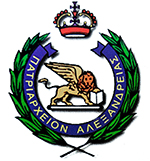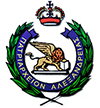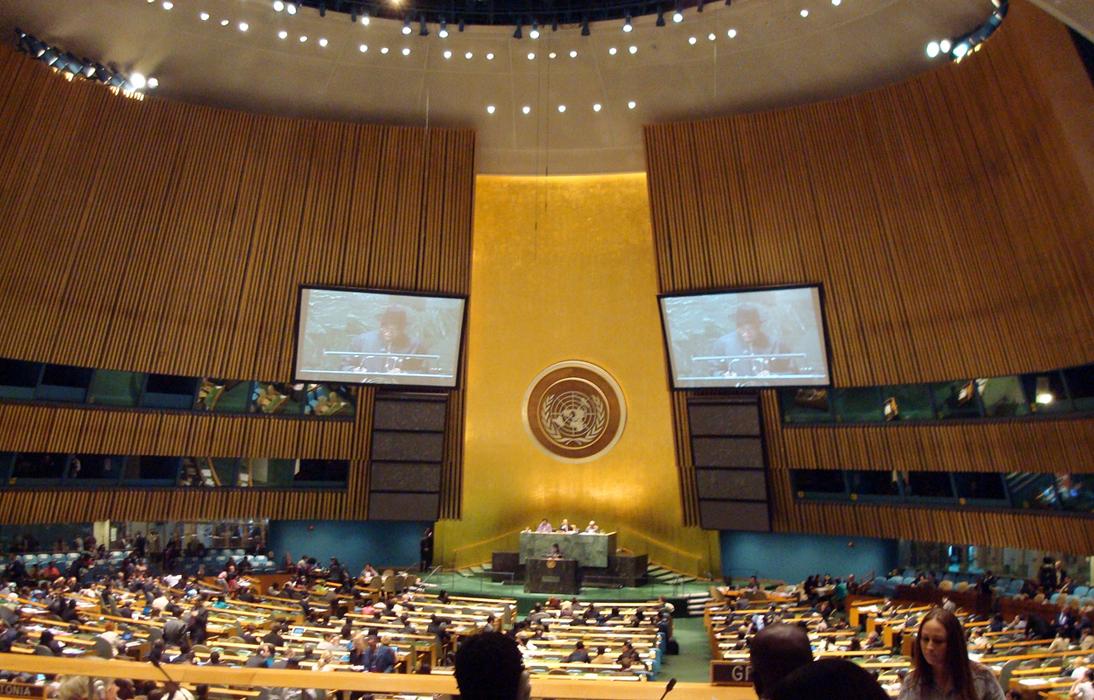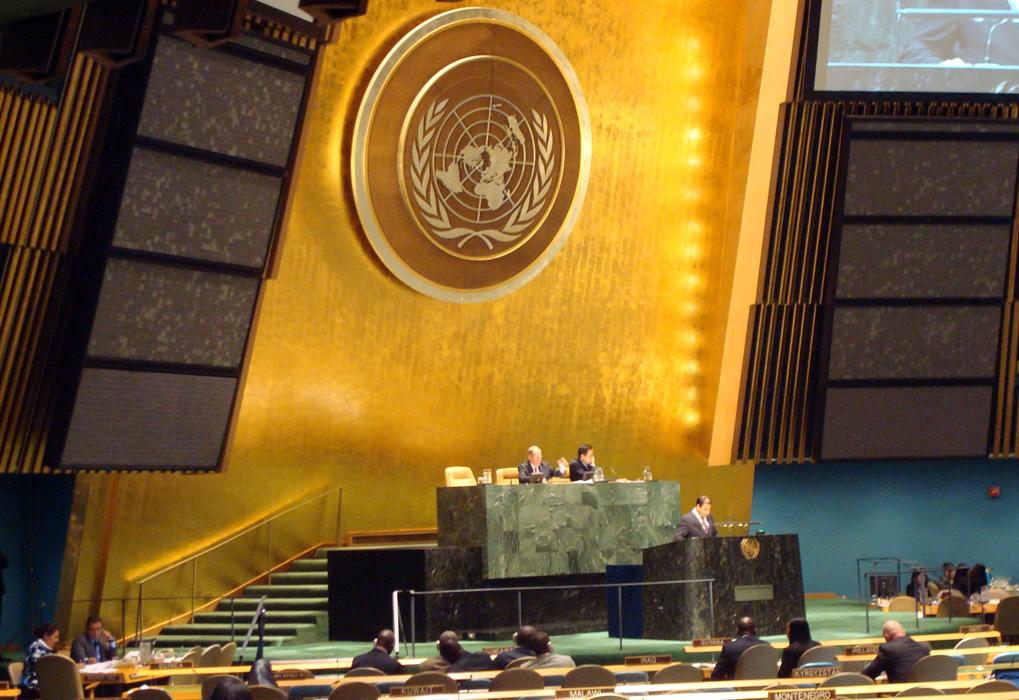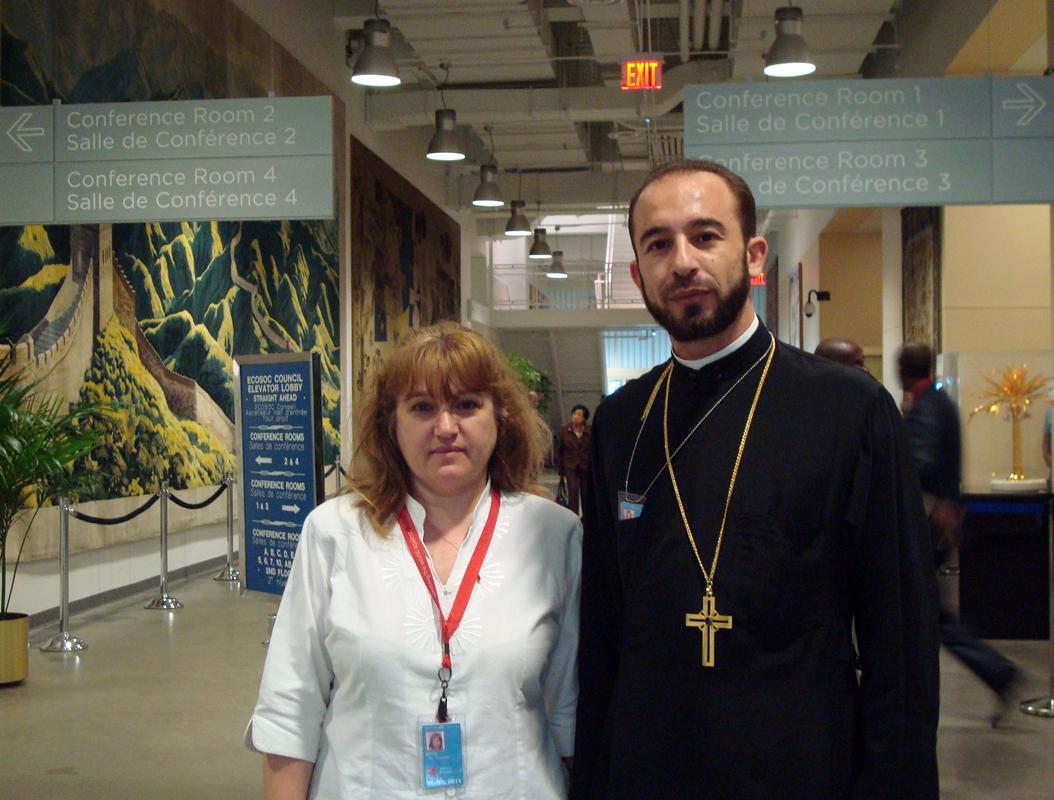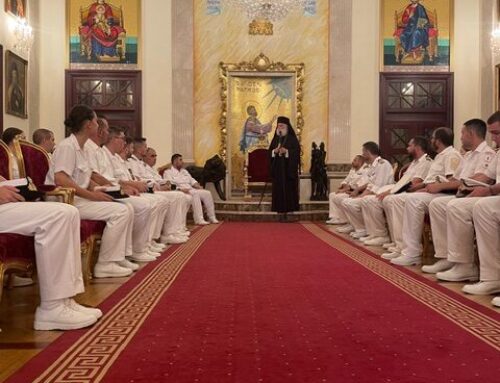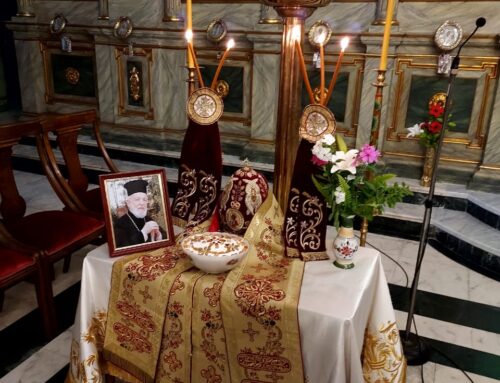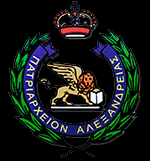From 8th to 10th June2011, at the Headquarters of the United Nations in New York, a high-level meeting was held by the Organization on the issue of HIV/AIDS. The meeting took place ten years after the political declaration of the year 2001 and the signing of the political declaration by the member states of the UN in the year 2006, which committed to succeeding in the prevention and cure of HIV/AIDS universally.
More than 30 leaders of countries, prime ministers, deputy presidents of governments and minister took part in the meeting, together with high-ranking state officials, diplomats, representatives of international organisations and NGO’s, to attend the General Meeting and the five appointed sessions, and 40 events are developing at the same time.
On the 10th June, the closing date of the deliberations, the member states adopted the new political declaration on AIDS which directs their reaction to the HIV virus for the next five years.
Dr Paul De Lay, Director of UNAIDS (the UN department on HIV/AIDS), said: “This meeting has as its aim to lead us to the beginning of the end of AIDS”.
The declaration, which the member states finally accepted, has explicit, measured – albeit ambitious aims, which have to be achieved by the end of the year 2015:
a)The reduction in the transmission of the HIV virus by 50% among those who use drugs,
b)The containment f sexual transmission of HIV,
c)Ensuring that no child in born with the HIV virus, coming from the mother during her pregnancy (direct transmission),
d)Access to antiretroviral therapy against the virus, so that at least 15 million people are undergoing therapy (up until the end of 2015) and,
e)The reduction by 50% of the deaths of people with HIV from tuberculosis (TB).
The member states undertook to reduce the international monetary deficit for AIDS by increasing sponsorship by between 22 and 24 billion dollars per annum.
The declaration underlines the urgent need for increased access to therapy against the HIV virus among the vulnerable population groups.
A large portion of the declaration speaks of access to cheap and safe medication for developing countries as well as for those countries already in great debt, through the possibilities offered by the use of TRIPS (under the established term TRIPS is understood the agreement for the keeping of the copyright of the antiretroviral medication which is produced by pharmaceutical companies within the framework of the World Health Organisation).
An appeal is made to the African countries to try harder for access to therapy, as well as to developed countries to maintain their responsibility towards the African countries for developmental aid, so that better education can be achieved, as well as good nutrition and safe drinking water in the countries which need these commodities.
The member states of the UN also undertook the obligation of working intensively for the erasing of gender inequality, violence against women, as well as the strengthening of the position and value of women.
Also stressed was the enormous importance of the voices of the religious leaders towards the approach of the epidemic. The fight against the stigma can be a significant task of the religious and ecclesiastical communities in the fight against HIV/AIDS.
Also significant was the decision taken by the Security Council of the UN, which was meeting at the same time during those days, for the protection of the peace corps and countries in which they intervene against HIV/AIDS (correct and circumspect conduct towards the local populations, as well as maintaining the hygiene terms and protection of the members of the peace corps).
Greece was represented at this General Meeting of the UN by His Excellency the Minister of Health Mr. Andreas Loverdos, three of his councillors, the Chairman of the Centre for Control and Prevention of Diseases, the Honourable Mrs Jenny Kremastinou, the Director of the Centre for Control and Prevention of Diseases, Mr. Theodoros Papademetriou, the specialist Doctor of the Centre for Control and Prevention of Diseases Mrs. Chrysoula Botsi, as well as by the permanent representatives of the country to the UN. Present at the deliberations of the community at the UN two Greek NGO’s participated, “ACT UP HELLAS” and “THETIKI FONI”.
For the first time in the Greek delegation, His Beatitude Theodoros II, Pope and Patriarch of Alexandria and All Africa and the ancient Patriarchate were represented, by the Very Reverend Archimandrite Panteleimon Arathymos, Chancellor of the Holy Synod.
The participation of the Patriarchate of Alexandria, following the historic decision of His Beatitude, was a necessity, in order that the UN should be aware of the silent activities of the Orthodox Church on issues dealing with health in Africa.
So, the above-mentioned Priest presented during the deliberations of the General Meeting the following actions from the Patriarchate on the African continent, in the struggle against HIV/AIDS:
1.Firstly, the promotion of Christian teaching regarding the uniqueness and sanctity of humanity as a divine creation, to which is due total respect, honour and the resulting protection both individually and collectively. In this process, stigmatization and distinction have no place, from wherever and by whomever they originate.
2.The clear viewpoint of the Venerable Primate of the Apostolic and Patriarchal Throne of Alexandria, His Beatitude Pope and Patriarch Theodoros II, on behalf of our suffering African brothers and sisters, who are plagued by HIV/AIDS and are in need of medico-pharmaceutical care, social, material and moral support, in a spirit of love and contribution and not in a manner of stigmatization and prejudice (“…for this reason this Christmas we are intensifying our efforts, in order to ease the pain, through an campaign filled with love. It will be a campaign of support of those who are suffering as well as one of sensitization of the local communities, so that the scourge of AIDS can become an opportunity of showing our spirituality and our humanity. Because, in serving those who suffer, we serve Christ Himself and give witness to the prophetic mission of the Church, the hope…” Patriarchal Encyclical Christmas 2010).
3.The creation of structures (treatment clinics over every degree) which offer medical and pharmaceutical treatment to AIDS sufferers of all ages.
4.Cooperation with local groups of doctors and international medical organizations (a) to inform the local populations by giving proven scientific criteria and (b) for the care of those suffering.
5.Creation of institutions and hostels for care, material support and psychological support of people of all ages, who have suffered family and social exclusion because of HIV/AIDS.
6.Financial strengthening of socially excluded people and or their families.
7.The informing of local populations by specialist scientific staff regarding the HIV virus, in collaboration with Priests appointed for this task, to deal with the relative social prejudices.
8.The granting of scholarships to African students of medical, pharmaceutical and psychosocial sciences so that they can serve their people in the future.
9. The participation of the Patriarchate of Alexandria and All Africa in international, pan-African and local organizations, inter-Christian and inter-Religious movements as well as in international meetings, within the framework of which initiatives are undertaken to deal with HIV/AIDS.
10.The Greek participation in the ESTHER Alliance under the auspices of His Beatitude, under the responsibility of the distinguished Doctor Chrysoula Botsi, a pneumonologist, TB specialist, anthropologist and health professional, specialising in HIV/AIDS issues, whom His Beatitude has appointed as his permanent representative for activities and programmes of European and International agents and organisations on HIV/AIDS issues, and human trafficking.
Clarification is given here that the ESTHER Alliance – Ensemble pour une Solidarite Therapeutique Hospitaliere En Reseau,- comprises a web of governments which promotes the connection of professional health and related agents with the immediate aim of cooperation in the struggle against HIV/AIDS, and its related viruses and consequences and the participation of Europe in the achievement of the aims of the millennium and the agreed undertaking of the countries for universal access to prevention, cure and care regarding HIV/AIDS.
Also, the position and viewpoint of the Orthodox Church of Africa were recorded regarding the topic of the General Meeting, which are:
1.The free issue of medication to all HIV/AIDS sufferers without distinction, with whichever possibilities are offered technologically and legally for access to safe and cheap medication.
2.Providing of immediate and credible diagnosis and observation of the HIV virus.
3.Immediate and correct information of the population regarding the HIV virus, as well as the clear condemnation of every manner of stigmatization and social exclusion of those who are suffering and finally,
4.The creation by all international and local agencies and organizations, who are dealing with the HIV virus, services, structures and all manner of medical, pharmaceutical and social supplies – which are undertaken by the contemporary developed world – for the people of Africa, together with correct nutrition and drinkable water.
It is to be noted that the active participation and viewpoints of the ancient Patriarchate at the UN General Meeting were met with general approval by all participants.


